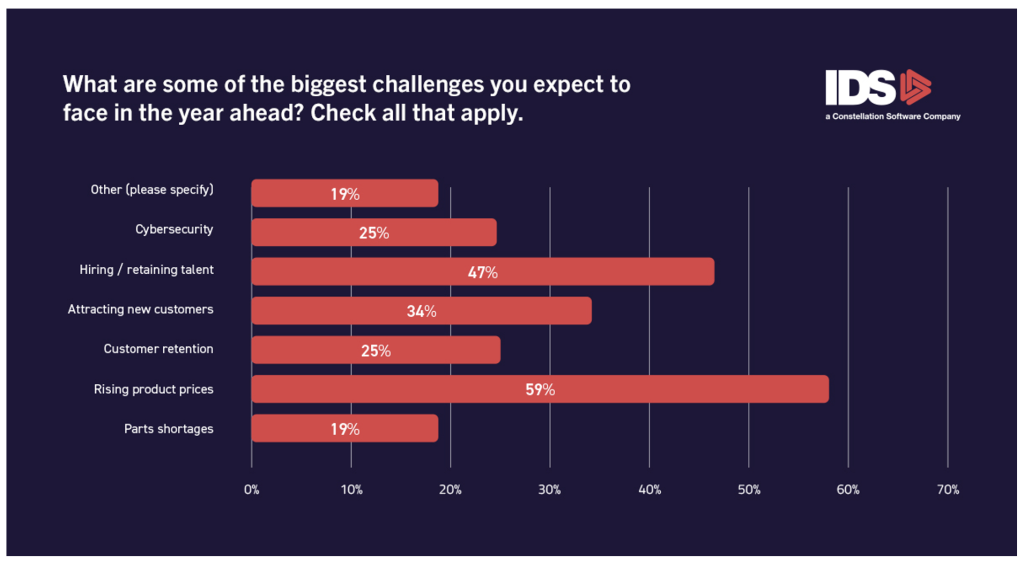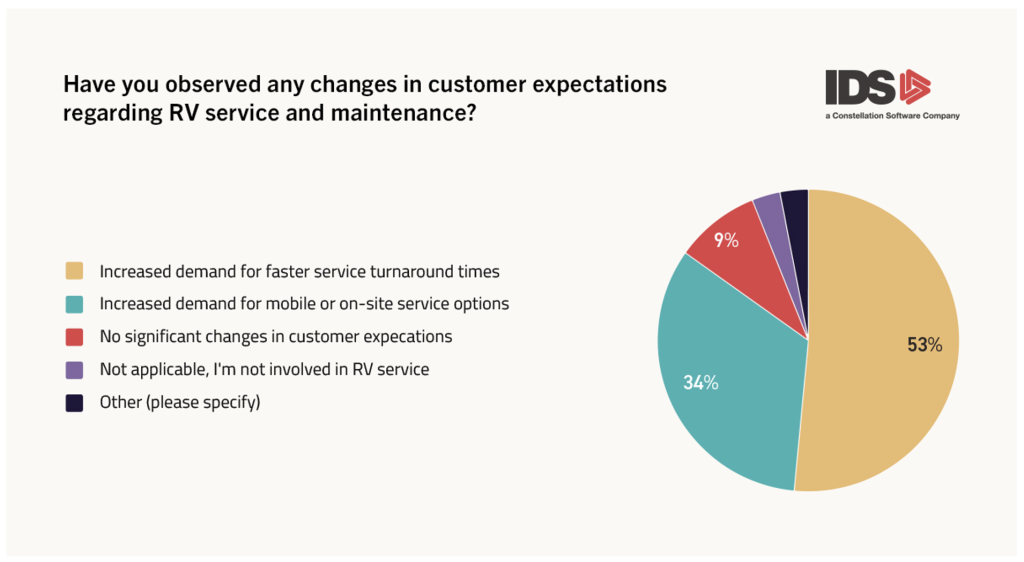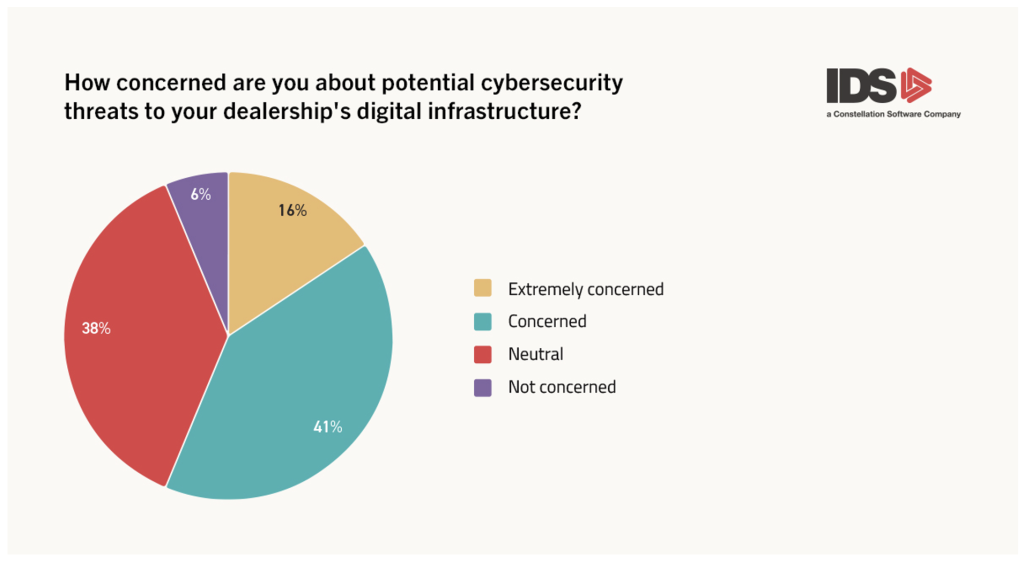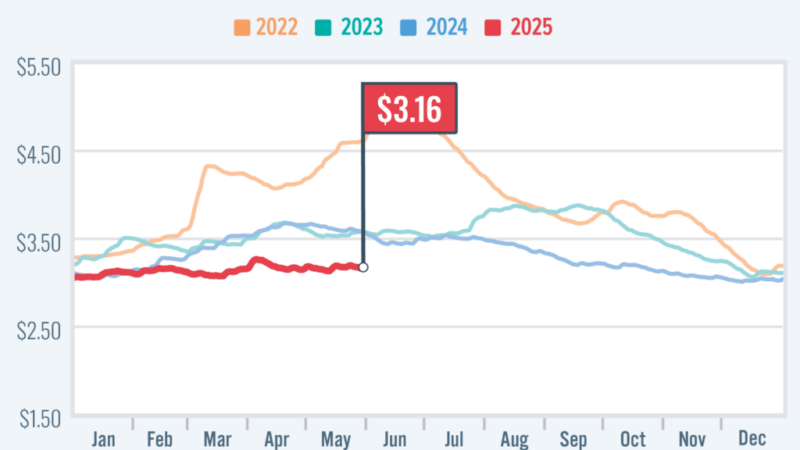IDS: 5 RV Industry Trends are Fueling Dealership Growth – RVBusiness – Breaking RV Industry News
IDS recently launched its annual RV Dealership Industry Trends Report, with predictions and projections for what dealers should focus on when planning for the year ahead. Let’s cut to the chase: technology and personalization are going to be the fuel that powers dealers’ business growth in 2024, according to a release from the Dealer Management Software (DMS) provider.
Here are five key trends from the report that you should take into consideration when putting together your 2024 business plan.
1. Aggressive Interest Rate Hikes Will Impact Consumer Behavior
The interest hikes we have seen this year signal an attempt to control inflation and stabilize the economy after the tumultuous period we have all been through in the last few years. According to an IDS survey of their customers, 60% of respondents said that they anticipate rising product prices being the biggest challenge they face in 2024.

Source: IDS 2023 Customer Survey
What This Means for Dealers:
Higher interest rates mean higher financing costs, which may deter potential buyers. In particular, those considering loans or credit purchases for their RVs. Dealers can work with lending institutions to design flexible financing options or in-house financing options, as well as long-term loans or balloon payments.
2. Fewer Units in the Market Means More Aging Inventory
Now that the RV market is progressing towards a normalized production phase, dealers will have to acclimate to what “normal” looks like. There are over 250k fewer units in the market, due to varying market conditions and excess inventory in many dealerships. Many manufacturers still have 2022 models in their active inventory, after choosing to forgo the usual model change mid-year and extending the ’22 model year.
What This Means for Dealers:
Dealers may find themselves hosting three different model years at the same time (’22, ’23, and ’24), with difficulty moving them. Many consumers are opting for more affordable trailers, fifth wheels, and camper trailers, as opposed to motorhomes. In particular, bunk models are rising in popularity, especially for families. Dealers will have to take this growing preference for simplicity over luxury into consideration when planning for the year ahead.
3. Mobile Experience is Now Mandatory
If your dealership doesn’t offer an optimized mobile experience, the time to offer one has already passed. Current consumers often begin their research on a mobile device, meaning their first impression of a dealership will be what they see on their phone or tablet. Consumers have also been primed to expect continuity in their buying experience, from booking services online, paying digitally, and receiving the reassurance of post-purchase interactions.

Source: IDS 2023 Customer Survey
What This Means for Dealers:
It’s not just a good idea, but imperative that your website loads quickly, displays correctly, and offers a smooth user experience on mobile devices. That includes offering online service bookings, digital payment options, and where possible, personalized post-purchase follow-ups.
4. Reactive Selling is Out, Proactive Selling is In
Customers aren’t just looking for a vehicle—they’re looking for an experience. They’re expecting a holistic purchasing experience that includes accessories to enhance the experience. Rather than waiting for customers to ask about accessories, sales teams should suggest valuable additions that will create the experience customers are seeking.
What This Means for Dealers:
Dealers will benefit from having a comprehensive inventory that caters to customers looking to make minor updates to units, or major overhauls. They may need to consider expanding their parts and service departments in order to support this.
5. Cybersecurity is Essential to Maintaining Consumer Trust
The threat of cyberattacks is at an all-time high, making cybersecurity a paramount concern to all businesses. Dealers should be aware that it is easier for attackers and locate and exploit vulnerabilities in on-premises servers than it is for servers hosted in the cloud. While many on-premises servers may only have one backup server if one breaks, cloud providers can easily move their servers between data centers if there is a breach.

Source: IDS 2023 Customer Survey
What This Means for Dealers:
Many dealers have made the move to cloud solutions in order to increase their cybersecurity. Cloud hosting means your data is stored in a remote and highly secure facility. A secure digital foundation will shield your dealership from cyber threats while also underscoring your commitment to customer security. Additionally, hosting your data in the cloud makes it easy to access your data anytime and anywhere, allowing for more flexible and agile operations.
Want to See What Other Trends Will Fuel Dealership Growth in 2024?
Read the RV Trends Report for free here.
Source: https://rvbusiness.com/ids-5-rv-industry-trends-are-fueling-dealership-growth/







